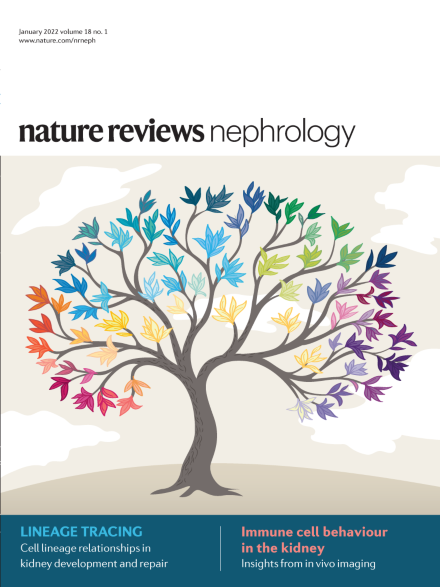败血症的免疫学:将新见解转化为临床实践。
IF 39.8
1区 医学
Q1 UROLOGY & NEPHROLOGY
引用次数: 0
摘要
脓毒症被定义为由宿主对感染反应失调引起的危及生命的器官功能障碍。影响这种失调宿主反应的治疗方法很少。脓毒症的免疫病理生理学包括过度炎症引起急性器官功能障碍,以及深刻和/或持续的抗炎反应,增加继发感染的易感性。脓毒症的免疫反应受到多种内源性和外源性因素的影响,包括基因组成、年龄、性别、合并症、代谢、既往微生物暴露和药物。因此,这种综合征的异质性阻碍了依赖“一刀切”方法的免疫调节治疗策略。因此,一种精准医疗方法是必要的。平衡应用预测和预测富集策略有助于实现精准医疗。利用临床、生理、微生物学和/或分子(“组学”)数据对患者进行表型分析,可以识别出更均匀的患者亚群。一些研究表明,这些方法可用于定制败血症患者的辅助免疫调节疗法。在重新利用现有药物治疗败血症的同时,旨在恢复免疫稳态的新药也在研究中。新的临床试验方法,包括灵活的平台试验、贝叶斯统计和嵌入试验在卫生保健系统中被越来越多地用于跟上脓毒症免疫生物学领域的快速发展,并最终改善临床结果。本文章由计算机程序翻译,如有差异,请以英文原文为准。
The immunology of sepsis: translating new insights into clinical practice.
Sepsis is defined as life-threatening organ dysfunction caused by a dysregulated host response to infection. Treatments that influence this dysregulated host response are sparse. The immunopathophysiology of sepsis entails overzealous inflammation causing acute organ dysfunction, as well as a profound and/or persistent anti-inflammatory response that increases susceptibility to secondary infection. The immune response in sepsis is under the influence of various endogenous and exogenous factors, including genetic makeup, age, sex, comorbidities, metabolism, prior microbial exposure and medications. The consequent heterogeneity of the syndrome hampers immunomodulatory treatment strategies that rely on a 'one-size-fits-all' approach. A precision medicine approach is therefore warranted. Balanced application of prognostic- and predictive-enrichment strategies is instrumental to achieve precision medicine. Phenotyping of patients using clinical, physiological, microbiological and/or molecular ('omics') data enables the identification of more homogeneous patient subgroups. Several studies suggest that such approaches can be used to tailor adjunctive immunomodulatory therapies in patients with sepsis. As well as repurposing existing drugs to treat sepsis, new drugs aimed at restoring immune homeostasis are under investigation. New clinical trial methodologies, including flexible platform trials, Bayesian statistics and embedding trials in health care systems are increasingly being used to keep pace with rapid developments in the field of sepsis immunobiology and ultimately to improve clinical outcomes.
求助全文
通过发布文献求助,成功后即可免费获取论文全文。
去求助
来源期刊

Nature Reviews Nephrology
医学-泌尿学与肾脏学
CiteScore
39.00
自引率
1.20%
发文量
127
审稿时长
6-12 weeks
期刊介绍:
Nature Reviews Nephrology aims to be the premier source of reviews and commentaries for the scientific communities it serves.
It strives to publish authoritative, accessible articles.
Articles are enhanced with clearly understandable figures, tables, and other display items.
Nature Reviews Nephrology publishes Research Highlights, News & Views, Comments, Reviews, Perspectives, and Consensus Statements.
The content is relevant to nephrologists and basic science researchers.
The broad scope of the journal ensures that the work reaches the widest possible audience.
 求助内容:
求助内容: 应助结果提醒方式:
应助结果提醒方式:


